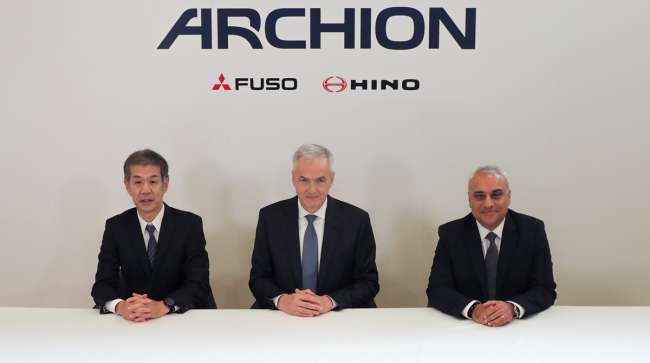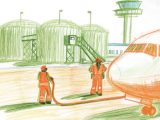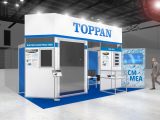
Archion Unveiled: hydrogen fuel cells Power Japan’s New Zero-Emission Truck Venture
October 24, 2025Nowadays, with industrial decarbonization shooting up the priority list—thanks to tighter climate targets and stricter regs—Japan’s truck makers are placing big bets on hydrogen. Come April 1, 2026, Archion—a fresh joint venture backed by heavyweights Toyota Motor Corporation and Daimler Truck AG—will hit the ground running, aiming to shake up the zero-emission technology truck scene. By bringing together Mitsubishi Fuso and Hino Motors, two brands with decades under their belts, Archion plans to turbocharge hydrogen fuel cells, streamline how they build trucks, and speed up launches across Asia, Europe, and North America. It’s clear: hydrogen production and hydrogen infrastructure are gearing up for a tipping point.
With Japan shooting for carbon neutrality by 2050, this JV isn’t messing around—it’s pouring resources into R&D, pilot runs, and revamping factories. Even though Mitsubishi Fuso and Hino Motors keep their own badges, Archion’s playbook is all about vertical integration—from fine-tuning fuel cell stacks to owning the entire supply chain. Marry Toyota’s years of hydrogen fuel cells know-how with Daimler’s truck-making heft, and you’re looking at up to 20% savings in development and shaving almost a year off project timelines. In short, teamwork over silos could spark the next wave of zero-emission technology in heavy hauling.
Consolidating Japan’s Truck Factories
Perhaps the boldest part: Archion is trimming its deck of factories from five to three big hubs—Kawasaki in Kanagawa, Koga in Ibaraki, and Nitta in Gunma. Under the deal, Hino’s Hamura plant slides into Toyota‘s side, while Mitsubishi Fuso’s Nakatsu site winds down, shifting its work to Kawasaki. The plan is to wrap up this reshuffle by late 2028, cutting red tape and getting leaner. Each hub will focus on what it does best—Kawasaki will crank out chassis, Koga tackles engines, and Nitta fine-tunes the powertrain.
Fuel Cell Technology at the Core
Right at Archion’s heart is the giants’ shared research on hydrogen fuel cells. Essentially, hydrogen meets oxygen inside a fuel cell stack to crank out electricity, leaving just water vapor and heat in its wake. That translates to longer hauls and pit stops for refueling instead of hours charging—perfect for heavy-duty rigs. Toyota’s lessons learned from the Mirai give Archion an edge on durability, while Daimler’s GenH2 prototypes have already racked up thousands of kilometers in Europe. By pooling their engineers, they plan to nail down better stack designs, tweak membranes, and lock in safer high-pressure hydrogen storage.
Strategic Implications
For both Toyota and Daimler Truck, Archion feels like the natural evolution of their years-long hydrogen partnership. It isn’t just about sharing costs—it’s about hitting the gas on scale. By combining forces, they’re chasing economies of scale that’d be out of reach solo. And timing couldn’t be better: emissions rules are tightening everywhere, from Europe’s Euro VII to similar crackdowns in the US and Asia. Rolling out a solid lineup of zero-emission technology trucks gives the JV a clear runway for compliance—and the confidence to double down on hydrogen production and distribution.
Beyond playing the regulator game, size is Archion’s secret weapon when haggling with tier-1 suppliers. A goal of cranking out 30,000 trucks a year by 2030 gives them real clout on prices for things like fuel cell membranes, high-pressure tanks, and sophisticated electronics. And let’s face it, when your raw materials—think platinum catalysts—can swing wildly in price, you want that kind of leverage. Locking in bulk deals not only slashes unit costs but nails down the long-term contracts you need to deploy big fleets without nasty surprises.
Regional Significance and Policy Context
Japan’s been ahead of the pack with its national hydrogen roadmap—shooting for 3 million tons of use by 2030 and 20 million by mid-century. Archion’s launch slots right into this, tapping incentives from the Basic Hydrogen Strategy and stimulus packages to drive down the cost of green hydrogen. Local governments around Archion’s plants are already setting aside grants for fueling stations and grid upgrades. By placing factories near planned electrolysis hubs, Archion can pilot full-cycle trials—linking fleets with renewables to show off what a truly hydrogen infrastructure-driven transport system looks like.
Global Competitive Landscape
Archion’s not alone in the hydrogen trucking race. Over in Europe, the Iveco-Mercedes team is rolling out prototypes, and Korea’s Hyundai-Kia duo is right on their heels. US startups like Nikola are still in the game, too. What sets Archion apart is scale—two established names under one roof—and Japan’s tight-knit supply base for high-purity storage materials. If Archion nails this, watch for more tie-ups: building both the trucks and the surrounding hydrogen infrastructure takes serious capital, and others may follow suit.
Customer Offerings and Product Roadmap
Archion’s roadmap kicks off with its first heavy-duty fuel cell truck hitting the road by late 2027, built to haul 25 to 40 tons. Those initial models will stick to regional routes where schedules are predictable, giving fleets a steady entry point. Come early 2030s, they’ll stretch into long-haul territory. And because they’re keeping their options open, Archion is also lining up battery-electric variants for shorter runs—giving customers flexibility and a hedge if hydrogen production costs play hardball. They’re even cooking up leasing and service packages to make fleet rollouts as painless as possible.
Industrial and Environmental Impact
Redrawing the factory map will shake up jobs, but Archion’s promising retraining programs and redeployment across sites means no one’s left in limbo. On the eco side, swapping diesel guts for hydrogen fuel cells doesn’t just slash CO₂—it also cuts NOₓ and particulate emissions, which is huge for city freight. Governments from Tokyo to local prefectures have already lined up subsidies for both the trucks and the refueling stations, knowing that you can’t have one without the other. With plants sitting close to planned hydrogen pipelines and liquefaction hubs, Archion is underlining how vehicle rollout and hydrogen infrastructure must grow in tandem.
Outlook and Challenges
Peeking ahead, Archion’s got to lock in big logistics partners to hit those volume targets. Many fleet operators are still on the sidelines, waiting for total cost of ownership figures that cover fuel spend, maintenance, and uptime. Early pilots in government fleets or port terminals could serve as crucial proof points. In Europe, Archion’s eyeing hydrogen corridors backed by public funding, and in North America, programs like California’s low-carbon fuel standards are on the radar. But it’s not all smooth sailing: if green hydrogen stays pricey or in short supply, battery electrics could keep the upper hand in certain niches.
About Archion
Archion is the holding company uniting Mitsubishi Fuso Truck and Bus Corporation and Hino Motors, Ltd., backed by Toyota Motor Corporation and Daimler Truck AG. Starting April 1, 2026, Archion focuses on developing zero-emission technology commercial vehicles—powered by hydrogen fuel cells—and pushing industrial decarbonization forward.



 With over 15 years of reporting hydrogen news, we are your premier source for the latest updates and insights in hydrogen and renewable energy.
With over 15 years of reporting hydrogen news, we are your premier source for the latest updates and insights in hydrogen and renewable energy.